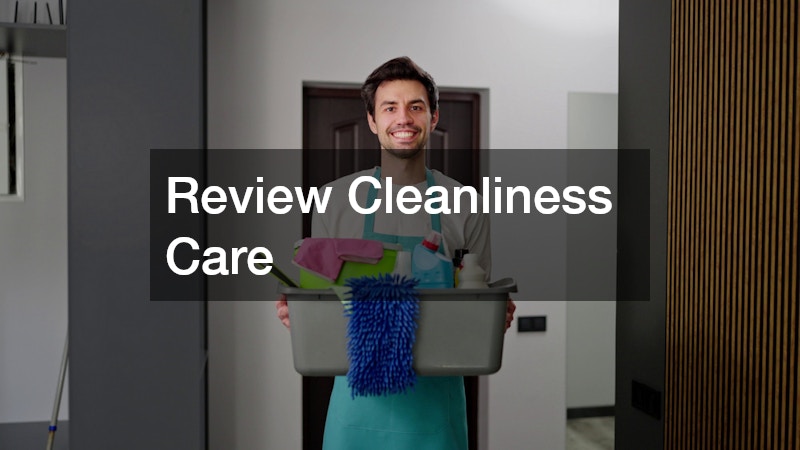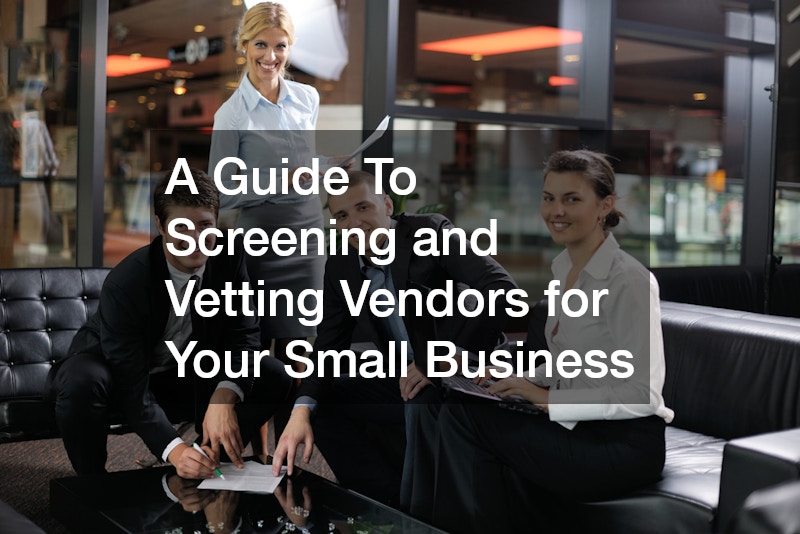As a small business owner, your success depends heavily on the quality and reliability of the vendors you choose to work with. From those providing behind-the-scenes support to the experts delivering customer-facing services, your vendor relationships form a critical foundation of your operations. That’s why screening and vetting are not just a recommended practice — it’s a vital process that can safeguard your time, budget, and reputation.
This guide was created to walk you through the essential steps of evaluating and selecting trusted vendors across various categories. While many business owners focus on price alone, it’s equally important to dig deeper into the credentials, track records, and communication practices of every potential partner. Doing so helps you avoid costly mistakes and ensures you’re building a support system that can grow with your business.
We’ll begin by helping you define what your business truly needs before reaching out to vendors. From there, we’ll dive into specific service categories, including technology, legal, financial, and facility maintenance, providing insights on how to approach each one with clarity and caution. Every section in this article will outline how to evaluate the qualifications and suitability of vendors in their respective fields.
Whether you’re just starting your business or looking to replace an underperforming vendor, this guide will equip you with the right questions to ask and the red flags to watch for. By developing a structured approach to screening and vetting, you’ll not only protect your business but also unlock long-term value through reliable partnerships. Let’s take a closer look at the process from the ground up.
Start with Your Needs

Before reaching out to any vendor, it’s critical to take a step back and clearly define what services your business truly needs. Rushing into partnerships without this clarity can lead to overpaying, selecting underqualified providers, or engaging vendors who simply aren’t a good fit for your operations. Start by identifying the specific gaps, pain points, or recurring tasks in your workflow that require external support. This is especially important in areas that handle sensitive data, customer information, or digital security, where precision and reliability are paramount.
For example, if you’re exploring digital protection services, determine whether your needs are limited to basic antivirus software or if you require more comprehensive, real-time network monitoring. A small retail business with moderate customer data may benefit from localized expertise in data protection rather than investing in full-time, in-house IT personnel. In such cases, partnering with local cybersecurity services can provide the right balance of cost-effectiveness and tailored support.
Understanding your requirements before initiating contact with vendors is the foundation of successful screening and vetting. It allows you to create clear expectations, evaluate proposals more objectively, and ask specific, insightful questions during the selection process. This proactive approach ensures you’re aligning with vendors who are equipped to meet your needs without overpromising or delivering unnecessary extras. Taking the time to assess your internal priorities will lead to more strategic, confident vendor decisions.
Check Digital Defenses
Modern businesses depend heavily on technology, from basic internet access to advanced software systems. As your reliance on digital tools grows, so does your vulnerability to technical failures and cybersecurity threats. That’s why evaluating vendors in this space requires a close look at their reliability, response time, and expertise in managing system integrity.
For example, IT services that offer both on-site and remote support can help you avoid prolonged outages. But don’t just rely on sales brochures. Ask for client references, verify certifications, and ensure they’re experienced with businesses of your size and industry. Transparent communication and proactive maintenance plans are often better indicators of long-term value than low rates.
The screening and vetting process here should focus on understanding their emergency protocols, support structure, and how well they adapt to your system infrastructure. A dependable vendor should make your operations smoother, not more complicated.
Assess Tech Support

If your small business depends on multiple devices or cloud-based tools, outsourcing technical management can save time and money. Managed IT services offer bundled support that typically includes monitoring, troubleshooting, and updating your digital systems. However, the scope and quality of these services vary greatly between providers.
Let’s say your business uses point-of-sale systems and customer management software daily. You’ll need a vendor who not only knows how to keep things running smoothly but can also anticipate and resolve disruptions before they affect your operations. Ask whether their team proactively monitors systems or only responds when something goes wrong.
Screening and vetting should also include service-level agreements (SLAs), escalation procedures, and data security protocols. A strong managed IT provider should offer not only technical capability but also clear accountability.
Verify Financial Help
Handling finances requires more than just basic bookkeeping. It demands accuracy, compliance, and strategic insight. That’s why hiring an experienced accounting service is an important step in protecting your bottom line. But not all providers offer the same level of attention or expertise.
Whether you’re managing payroll, filing taxes, or setting up financial reports, your accountant should have relevant certifications and a track record in helping businesses like yours. Ask about their experience with small business tax codes, their software preferences, and how they keep up with changing regulations.
In terms of screening and vetting, look for vendors who prioritize communication and transparency. Clear explanations of billing methods and the ability to break down complex topics into manageable insights are signs of a strong financial partner. Find out their cybersecurity plans since they will have access to your personal, private data. A good firm will have secured data storage and security systems.
Review Cleanliness Care

First impressions matter, and that includes the cleanliness of your workspace. Whether you run a retail store, office, or clinic, maintaining clean floors and carpets can impact both customer perception and employee health. Professional cleaning services can help, but you’ll want to carefully evaluate their reliability and thoroughness.
If you’re hiring a business carpet cleaning company, ask about their cleaning methods, equipment, and availability during off-hours. Stains, allergens, and foot traffic all require tailored cleaning strategies. Some vendors offer eco-friendly products or deep-cleaning packages that extend the life of your flooring. Be sure to compare options that blend quality with a reasonable price point.
Use screening and vetting to ensure they’re licensed, insured, and background-checked employees. This not only safeguards your property but ensures you’re bringing in trustworthy professionals who will treat your space with care.
Inspect Sanitation Help
Keeping your business environment free from pests is essential for safety, compliance, and peace of mind. A single infestation can harm your reputation, especially if customers or employees are affected. Regular inspections and proactive treatments from a dependable sanitation vendor can help avoid these issues.
When considering a pest control company, ask about their licensing, chemical use, and safety measures for indoor environments. It’s important that their approach aligns with your business needs — for example, food service businesses require extra precautions and specific compliance standards.
Screening and vetting should also include customer reviews, local referrals, and frequency of service. Choosing a vendor that understands your industry’s specific challenges will reduce long-term risks and keep your operations running smoothly.
Evaluate Outdoor Work

Your parking lot or outdoor walkways are often the first physical touchpoints a customer experiences. If they’re cracked, uneven, or unkempt, it can negatively impact perceptions and even create liability issues. A skilled paving partner can help with maintenance, repairs, or new construction.
When seeking commercial paving services, evaluate their experience with projects similar in size and scope to yours. Ask about timelines, material quality, and past project outcomes. A solid contractor should also be familiar with local weather conditions and municipal regulations.
The screening and vetting process should include checking licenses, insurance, and bonding status. Review portfolios and talk directly to past clients when possible. Strong vendors will be transparent about costs and realistic about what they can deliver.
Cover Event Risks
If your business hosts events, large meetings, or workshops, protecting attendees through proper insurance coverage is a smart and necessary element of risk management. Whether it’s a minor accident or a major cancellation, the financial and legal consequences of being unprotected can be severe. Even well-planned events are vulnerable to unexpected circumstances, making this kind of coverage a critical safeguard.
When searching for coverage, look for attendee insurance providers that offer customizable plans tailored to your event’s size, location, and type. Ask detailed questions about what the policy includes, such as weather-related cancellations, liability coverage, property damage, and medical expenses for injuries sustained by guests. Some providers may also offer additional options like coverage for vendor issues or last-minute venue changes.
During screening and vetting, prioritize providers who have experience working with small businesses and understand the unique dynamics of your events. Request sample policies and walk through hypothetical scenarios with the agent to see how the process would unfold. Clear documentation, responsive communication, and a willingness to explain terms thoroughly are key indicators that the provider will be a reliable partner when you need them most.
Ensure Legal Backup
Legal support is a cornerstone of long-term business stability and risk mitigation. Whether you need help reviewing contracts, navigating employee policies, or managing disputes, having a knowledgeable legal advisor who is both responsive and business-minded can make a significant difference. The right attorney doesn’t just react to problems — they help prevent them by identifying potential risks before they escalate.
When evaluating attorneys, focus on those who specialize in small business law and demonstrate a solid understanding of the challenges faced by growing enterprises. Ask about their experience with contract negotiations, compliance with local and state regulations, and how they typically communicate with clients. It’s also helpful to know whether they offer flexible billing options and how they handle urgent legal matters. Many attorneys provide initial consultations, giving you a chance to assess their personality, approach, and fit before making a formal agreement.
Screening and vetting legal professionals should be approached with care and attention. Always verify their licensing status, credentials, and track record through trusted sources. Don’t hesitate to request references or examples of how they’ve supported other small businesses. A reliable attorney should feel like a long-term partner who not only understands your business’s structure and goals but also aligns with your risk tolerance and operational style. Their guidance can serve as both a legal shield and a strategic asset.
Confirm Essential Repairs
Plumbing issues can disrupt your operations quickly, from minor leaks to major pipe bursts; every minute counts when water is involved. Reliable repair services ensure minimal downtime and protect your assets.
Search for a plumbing company that offers commercial support and understands the urgency of business disruptions. Look into their availability for emergency repairs, their response times, and whether they provide preventative maintenance options as well.
Screening and vetting should involve checking licenses, insurance coverage, and response protocols. Prioritize vendors who clearly outline their services and offer transparent pricing. A dependable plumbing partner can make the difference between a quick fix and a prolonged, costly problem.
Partners for Support
Choosing the right vendors for your small business is more than a matter of price or convenience. It’s about building a network of trusted professionals who contribute to your growth, reliability, and reputation. This guide has explored ten vital service categories where thoughtful screening and vetting can help you make informed, confident decisions.
From technology and legal support to maintenance and sanitation, each vendor plays a unique role in your business ecosystem. Taking the time to clearly define your needs and ask the right questions will save you money, time, and frustration. Whether you’re seeking digital protection, a clean environment, or coverage for special events, every category outlined here offers insight into what matters most when selecting the right partner.
In today’s competitive landscape, even small businesses must operate with precision and accountability. The vendors you bring into your circle are an extension of your brand and operations. Poor vendor choices can lead to delays, customer dissatisfaction, or legal trouble, while excellent vendors can elevate your business, foster trust with your clients, and streamline your daily work.
By applying a consistent approach to screening and vetting, you gain control over one of the most influential parts of your business structure. Trust builds over time, but it starts with making the right choices from the beginning. Let this guide serve as a practical foundation as you seek out partners who will truly support your business’s success.




